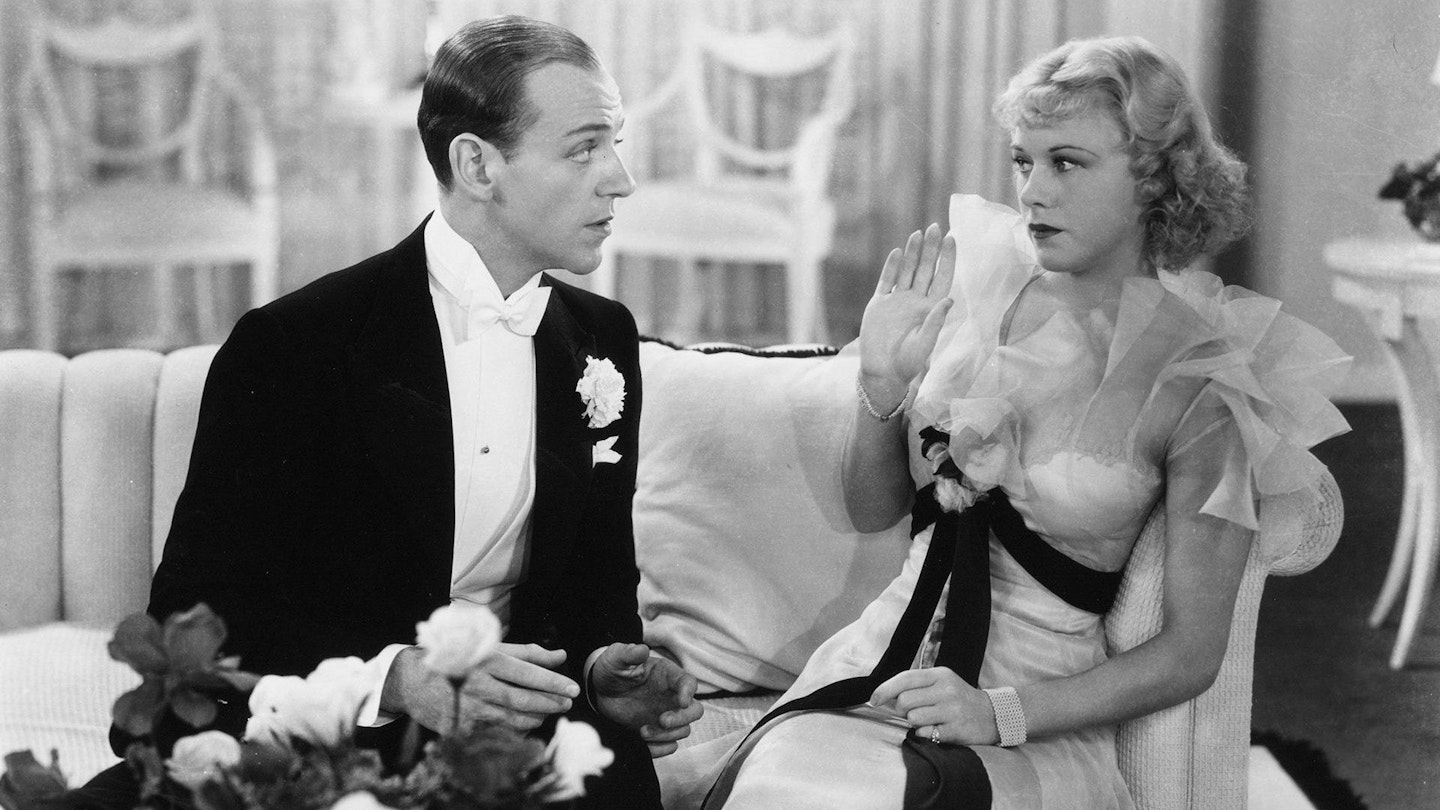Realising they had stumbled on to a star teaming in Flying Down to Rio (1933), RKO announced that Fred Astaire and Ginger Rogers would reunite in Radio City Revels. However, while scribes struggled to come up with a scenario to fit the title, someone in the front office suggested acquiring the rights to Cole Porter's stage hit, The Gay Divorce, as Fred had already scored with it on Broadway and in London. Initially, Astaire didn't think Ginger had the class to play the female lead and suggested the studio found an English type. However, he was more concerned about becoming bound into another partnership so soon after breaking with his now-retired sister, Adele. But once The Gay Divorcee (whose title was changed to mollify a Hays Office keen not to make marital break-up sound too attractive) became a box-office smash and RKO realised it had devised a new form of intimate musical comedy, Fred and Ginger's fates were sealed.
They only dance for around 10 minutes in the whole picture, as it adhered closely to the operetta strategy of twinning the romantic leads with a comic pair whose relationship mirrors that of the stars. Thus, Alice Brady and Edward Everett Horton (as Fred's lawyer pal, Egbert Fitzgerald) are accorded their own set-pieces, as were Erik Rhodes and Eric Blore, as a fussy waiter. Indeed, Everett Horton even got his own musical showcase, `Let's K-nock K-neez', which he shared with the up-and-coming Betty Grable.
All but one of Porter's original songs were dropped, but Night and Day' remains one of Fredn'Ginger's finest duets and established the seduction dance as his way of winning her heart. Astaire's solo, A Needle in a Haystack', is also memorable, as it had all the balletic grace of a slapstick routine, as he cavorted around his dressing-room. But, while The Continental' won the inaugural Oscar for Best Song, it was an elongated ensemble affair that lacked any of the élan that Busby Berkeley invested into his `variation on a theme' showstoppers.
